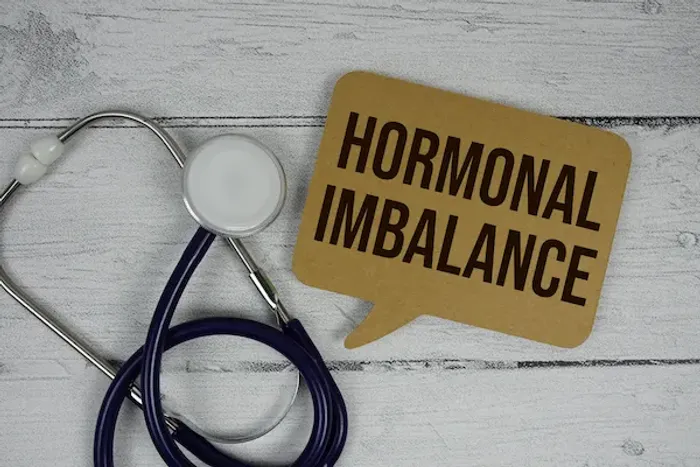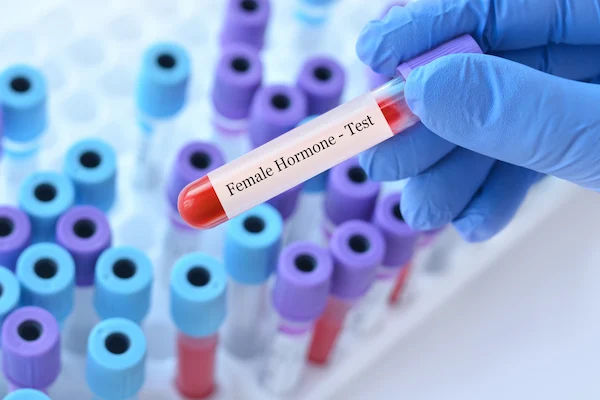Hormonal Imbalance Tests Every Woman Must Know
Know about the hormonal imbalance test, symptoms, time for the test, and fertility care and management.

Written by Dr. Rohinipriyanka Pondugula
Reviewed by Dr. Siri Nallapu MBBS
Last updated on 9th Sep, 2025

Hormones are tiny messengers in the body that help control many important functions, especially in women. They can affect your mood, weight, energy levels, menstrual cycles, skin, and even bone strength. These hormones need to stay in the right balance for everything to work smoothly. But when they go out of balance, even a little, it can cause many health issues that affect your daily life, especially if you're a woman between the ages of 20 and 45.
To understand what’s going on in your body, doctors often recommend hormone tests like the female hormone test or a full women’s hormone profile. These tests help find out if there’s an imbalance, so you can start the right treatment early.
Symptoms That Suggest Hormonal Imbalance
Hormonal problems can show up in different ways and can feel like other health issues, which makes it hard to know what’s wrong. That’s why it's important to recognise the warning signs and consider that hormones might be the cause. If you experience any of these symptoms, it may be time to consult a doctor and consider getting a hormone test.
Common symptoms that may signal a need for hormonal testing include:
- Irregular or absent periods
- Heavy or painful periods
- Unexplained weight gain or difficulty losing weight
- Acne, especially adult-onset acne
- Excessive hair growth (hirsutism) or hair loss
- Fatigue and low energy
- Mood swings, anxiety, and depression
- Difficulty conceiving or infertility
- Hot flashes and night sweats
- Decreased libido
- Sleep disturbances
If you are experiencing any of these symptoms, particularly a combination of them, it is advisable to consult your doctor. They can assess your symptoms and medical history to determine if hormonal testing is appropriate for you.
LH, FSH, Prolactin, TSH and Estrogen Panels
When investigating hormonal imbalances, a healthcare professional will often recommend a specific panel of blood tests to measure key hormones. These tests provide a comprehensive women’s hormone profile, offering invaluable insights into the functioning of your endocrine system.
Follicle-Stimulating Hormone (FSH): FSH is produced by the pituitary gland in the brain and plays a critical role in ovarian function. In women, FSH stimulates the growth of ovarian follicles, which contain eggs, and also prompts the ovaries to produce oestrogen.
Significance: FSH levels are crucial for assessing ovarian reserve (the quantity and quality of a woman's eggs) and diagnosing conditions like primary ovarian insufficiency (early menopause). High FSH levels can indicate that the ovaries are not responding adequately to the pituitary's signals, suggesting diminished ovarian function. It is also used to help diagnose Polycystic Ovary Syndrome (PCOS) and evaluate menstrual irregularities or infertility.
Book a Follicle Stimulating Hormone Test
Luteinising Hormone (LH): Like FSH, LH is also produced by the pituitary gland. In women, LH plays a vital role in triggering ovulation, the release of an egg from the ovary, and stimulating the corpus luteum (the follicle after ovulation) to produce progesterone.
Significance: LH levels are essential for pinpointing the timing of ovulation, which is particularly useful for women trying to conceive. an LH surge indicates that ovulation is imminent. Abnormal LH levels, especially a consistently high LH-to-FSH ratio, can be indicative of Polycystic Ovary Syndrome (PCOS). It is also used to investigate menstrual irregularities and infertility.
Book a Luteinising Hormone Test
Prolactin: This hormone, also produced by the pituitary gland, is primarily known for its role in stimulating breast milk production (lactation) after childbirth.
Significance: Elevated prolactin levels (hyperprolactinemia) outside of pregnancy or breastfeeding can cause irregular periods, absent periods (amenorrhoea), nipple discharge (galactorrhoea), and fertility issues. High prolactin can be caused by certain medications, stress, or a pituitary tumour called a prolactinoma. A prolactin test helps diagnose these conditions.
Thyroid-Stimulating Hormone (TSH): TSH is produced by the pituitary gland and regulates the production of thyroid hormones (T3 and T4) by the thyroid gland. These hormones are crucial for metabolism, energy levels, body temperature, and many other bodily functions.
Significance: TSH is the most common and effective screening test for thyroid disorders. High TSH levels indicate an underactive thyroid (hypothyroidism), where the thyroid gland isn't producing enough hormones. Low TSH levels suggest an overactive thyroid (hyperthyroidism). Both conditions can significantly impact a woman's reproductive health, energy, weight, and mood.
Book a Thyroid-Stimulating Hormone
Oestrogen (Estradiol): Oestrogen is the primary female sex hormone, mainly produced by the ovaries. It plays a crucial role in regulating the menstrual cycle, developing female secondary sexual characteristics, maintaining bone density, and influencing mood. Estradiol is the most potent form of oestrogen and is commonly measured.
Significance: Oestrogen levels fluctuate throughout the menstrual cycle. Measuring oestrogen helps evaluate ovarian function, diagnose causes of irregular periods or infertility, assess menopausal status (or premature ovarian insufficiency), and monitor hormone replacement therapy. Abnormally high or low levels can contribute to symptoms like abnormal uterine bleeding, hot flashes, mood swings, and bone loss.
Check Your Hormone Levels Here
When to Test Based on Your Menstrual Cycle
The timing of hormonal tests is often critical, especially for women of reproductive age, as hormone levels fluctuate significantly throughout the menstrual cycle. To get the most accurate and interpretable results for a female hormone test, your doctor will usually specify when to have the blood drawn.
- Early Follicular Phase (Day 2-5 of your cycle): This is typically when FSH and LH levels are measured to assess ovarian reserve and baseline hormonal status. Oestrogen (Estradiol) is also often measured at this time. Low oestrogen and elevated FSH on day 3 can indicate diminished ovarian reserve.
- Mid-Cycle (Around Day 12-16, depending on cycle length): If monitoring for ovulation, an LH surge test might be recommended around this time. This helps to pinpoint the most fertile window for conception.
- Mid-Luteal Phase (Around Day 21 of a 28-day cycle, or 7 days after ovulation): Progesterone levels are often checked during this phase to confirm ovulation and assess the quality of the luteal phase, which is essential for supporting a potential pregnancy. While progesterone wasn't explicitly mentioned in the prompt's angle, it's a critical hormone in a comprehensive women's hormone profile.
- Any time (for certain hormones): Prolactin and TSH levels can often be checked at any point in your cycle, though your doctor might still recommend a morning sample for prolactin due to its natural fluctuations. For women with absent or highly irregular periods, the timing might be less critical or determined by specific symptoms.
It is crucial to follow your doctor's specific instructions regarding test timing to ensure the results are meaningful and can guide appropriate diagnosis and treatment.
How Reports Guide PCOS or Fertility Care
Understanding your hormonal test reports is a powerful step towards managing conditions like Polycystic Ovary Syndrome (PCOS) or navigating fertility challenges. The results of your female hormone test provide your healthcare team with vital clues, enabling them to formulate a targeted and effective treatment plan.
For PCOS Diagnosis and Management:
PCOS is a complex hormonal disorder often characterised by irregular periods, excess androgen levels (leading to symptoms like acne and hirsutism), and polycystic ovaries (though not always present). Hormonal tests are central to its diagnosis:
- LH and FSH Ratios: In many women with PCOS, the LH to FSH ratio is elevated (often greater than 2:1 or 3:1). This imbalance indicates a dysregulation in the communication between the brain and the ovaries, contributing to anovulation (lack of ovulation).
- Androgen Levels (e.g., Testosterone, DHEA-S): Elevated levels of androgens are a hallmark of PCOS. These tests confirm the presence of androgen excess, which explains many of the common symptoms.
- Oestrogen Levels: Oestrogen levels in PCOS can be variable but often show a consistent level rather than the cyclical fluctuations seen in ovulatory cycles.
- Prolactin and TSH: These are often tested to rule out other conditions that might mimic PCOS symptoms. For instance, high prolactin can also cause irregular periods.
Book Hormonal Health Checkups via Apollo 24|7
Taking proactive steps towards understanding your hormonal health has never been easier, thanks to accessible diagnostic services like those offered by Apollo 24|7. As an expert medical writer and editor, I can confidently highlight the convenience and reliability that Apollo 24|7 brings to patient educational materials.
Advantages of Booking with Apollo 24|7:
- Convenience of home sample collection
- Reputable and reliable Labs
- Comprehensive test packages
- Easy online booking and report access
- Expert medical guidance
Booking your hormonal health checkup through Apollo 24|7 empowers you to take control of your health journey with unparalleled ease and confidence, ensuring you receive accurate diagnostics to guide your well-being.
Conclusion
Hormones are the silent architects of a woman's health, constantly working behind the scenes to maintain balance and regulate vital bodily functions. For women between 20 and 45, maintaining this delicate equilibrium is crucial for reproductive health, energy, mood, and overall quality of life. Symptoms of hormonal imbalance, though often subtle at first, can significantly impact daily living and long-term health if left unaddressed.



